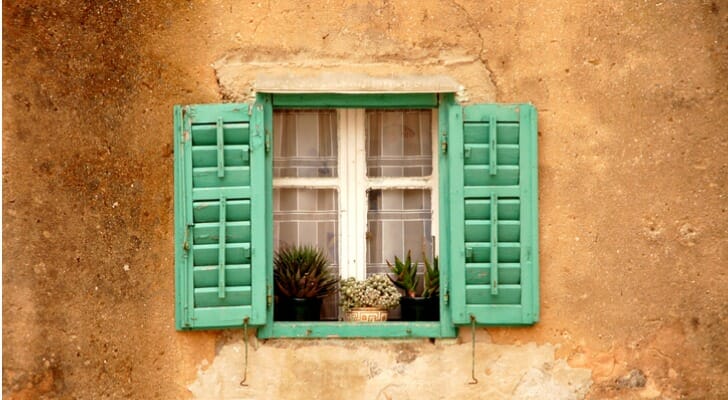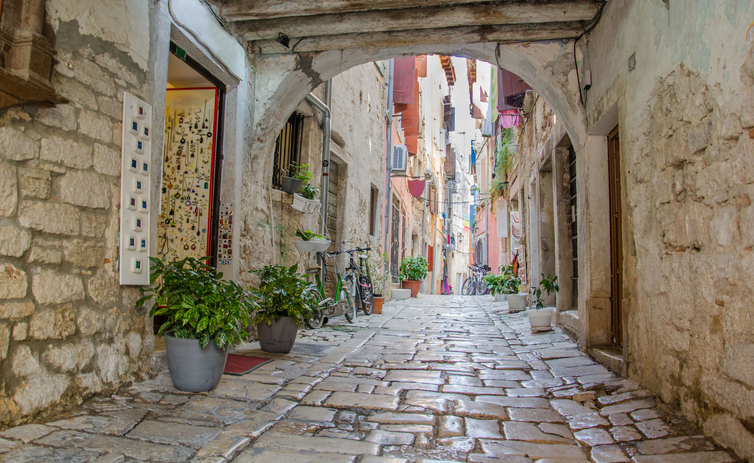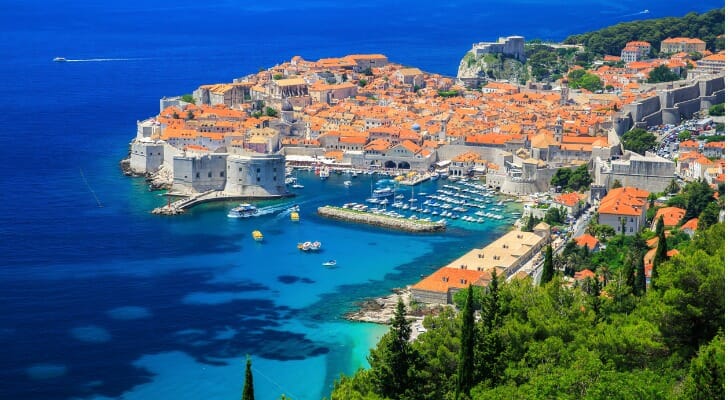When many people picture Croatia, they think of the dazzling Dalmatian coastline, the dramatic filming backdrop for Game of Thrones, or the emerald pools and cascading waterfalls of Plitvice Lakes National Park. Those drawn to urban life may imagine Zagreb’s lively markets, café culture and energetic street scenes. Blending natural beauty, deep cultural roots and welcoming communities, Croatia appeals to a wide range of lifestyles, including retirees seeking a scenic, affordable place to settle. If you’re considering making Croatia your retirement home, here’s what to know before you go.
Before taking the leap, it can be a good idea to speak with a financial advisor to make sure your financial plan is ready for retirement abroad.
Getting a Croatian Visa
One of the first steps to retiring in Croatia is securing the proper visa. Stays longer than 90 days require both a visa and a temporary residency permit. 1 If you intend to work during retirement, you’ll also need a work or business permit. Croatia now offers a digital nomad visa as well, allowing eligible remote workers, including those who run their own businesses, to live in the country for up to one year.
You’ll need to apply for your visa while still in the U.S. Applications are handled by the Embassy of the Republic of Croatia in Washington, D.C., and by the Consulate General offices in New York, Los Angeles and Chicago. You can contact these offices directly or visit their websites to start the process.
After arriving in Croatia, you must apply for your temporary residency permit at a local police station within the first few weeks. Be prepared to provide a copy of your U.S. passport, two passport photos, a birth certificate, proof of health insurance, documentation of your housing in Croatia, evidence of sufficient financial resources (such as retirement savings) and a background check.
You’ll also be asked to explain your reason for living in Croatia, whether it’s to retire, invest in property or even moor a boat in a local port. While the appointment at the police station typically takes only a couple of hours, the formal approval process usually takes a few weeks.
Healthcare in Croatia
When you apply for your Croatian residence permit, you’ll be required to register for and pay into the state health system. The system is called the Croatian Health Insurance Fund. 2 This will allow you to visit public doctors at no or a very low cost. Some elective procedures and specialists will charge a small fee, but any routine medical care will be free of charge at the time of delivery.
Before you can use the public healthcare system, you’ll be required to have made a year’s worth of payments. If you’re in Croatia for less than a year before needing to use the system, you’ll simply make back payments. These payments come to about $800 per year, so healthcare in Croatia costs significantly less than in the United States. Foreigners can also use the private healthcare system. This system costs more, but your private health insurance may cover many of the costs.
Every major metropolitan area has large hospitals available for both locals and foreigners, and there are many English-speaking doctors in Croatia. The standard of medical care is high, ranking as the 53rd best system in the world, slightly above the United States at 69th, according to the 2025 edition of the CEOWORLD Magazine Health Care Index. 3
Housing Cost in Croatia

As you plan your move, one of the biggest factors to consider will be housing. Many retirees choose to live in Split, a city on the seaside. If you don’t enjoy the beach, Zagreb, the capital city, is another popular destination.
The average apartment rental in Croatia is about $755 per month compared to over $1,700 per month in the United States, according to cost of living comparison site Numbeo. 4 In Zagreb, a one-bedroom apartment costs about $760 per month. When we compare the city with New York City, where a one-bedroom apartment costs more than $3,600 per month, Croatia is very affordable.
If you plan to purchase in Croatia, the national average cost of an apartment in the city center is about $440 per square foot. In New York City, the average cost per square foot of an apartment in the city center is nearly $1,300, so your dollar will go further if you plan to purchase a home in Croatia.
Taxes in Croatia
As a visa holder in Croatia, you’ll only have to pay taxes on money earned in Croatia. So if you’re simply retired and collecting on your pension or money earned in the United States, you won’t have to pay taxes in Croatia.
If you spend more than 183 days per year in Croatia, you’ll be considered a resident for tax purposes. You’ll also be considered a resident if you lease or own a home for your exclusive use in the country, regardless of how many days you spend there per year. Regardless of this tax status, you’ll only be taxed on income earned in Croatia.
As a U.S. resident, you must file taxes in the United States each year. You’ll have to report any foreign bank accounts, as well. If you earn any money outside of the U.S., you can use a few different provisions to reduce your U.S. taxable income. These include the foreign earned income exclusion, the foreign tax credit, and the foreign housing exclusion, among others.
If you’d like to forecast your tax burden more specifically, you can consider consulting with a cross-border accountant who is familiar with both U.S. and Croatian tax laws.
Safety in Croatia
Croatia is generally considered a very safe place to live and visit. Summers can be quite hot, and with thousands of miles of coastline, the most common issues tourists and expats face are sunburn, heat exhaustion and dehydration. These are all preventable with proper precautions, and if you do need medical care, Croatia’s healthcare system is high-quality and comparable to American standards, as we discussed above.
The country also has significantly lower rates of violent crime than the United States, and overall crime levels remain very low. As a result, the U.S. State Department assigns Croatia its lowest travel advisory level. 5
Bottom Line

If you want to retire somewhere that is cost-effective, safe and beautiful, Croatia might make your shortlist. Your dollar can go much further in housing in Croatia than it can in the United States, especially if you dream of living on the water. Additionally, it’s relatively easy for Americans to get visas to stay in Croatia long-term. It could be the retirement you’re dreaming of if your finances are in order.
Tips for Achieving Your Retirement Goals
- A financial advisor can help you plan for overseas retirement and make sure your finances are in order. Finding the right financial advisor that fits your needs doesn’t have to be hard. SmartAsset’s free tool matches you with vetted financial advisors who serve your area. You can interview your advisor matches at no cost to decide which one is right for you. If you’re ready to find an advisor who can help you achieve your financial goals, get started now.
- It’s tough to plan for your retirement if you aren’t sure what kind of costs you’ll have when you actually retire. To get an idea of what to expect, use our free retirement calculator. You’ll need a few details about where you want to retire, when you want to retire and how much you have in savings.
Photo credit: ©iStock.com/sorincolac, ©iStock.com/vidka, ©iStock.com/Rita Fodorne Mate
Article Sources
All articles are reviewed and updated by SmartAsset’s fact-checkers for accuracy. Visit our Editorial Policy for more details on our overall journalistic standards.
- U.S. Embassy in Croatia, https://hr.usembassy.gov/entry-and-residence-requirements/. Accessed 21 Nov. 2025.
- Croatian Health Insurance Fund, https://hzzo.hr/en. Accessed 21 Nov. 2025.
- Cronin, Joe. “The Best Healthcare in the World: Country Rankings.” International Citizens Insurance, 21 Nov. 2025, https://www.internationalinsurance.com/health/systems/.
- Cost Of Living Comparison Between Croatia And United States. https://www.numbeo.com/cost-of-living/compare_countries_result.jsp?country1=Croatia&country2=United+States. Accessed 21 Nov. 2025.
- Croatia International Travel Information. 9 Oct. 2025, https://travel.state.gov/content/travel/en/international-travel/International-Travel-Country-Information-Pages/Croatia.html.
